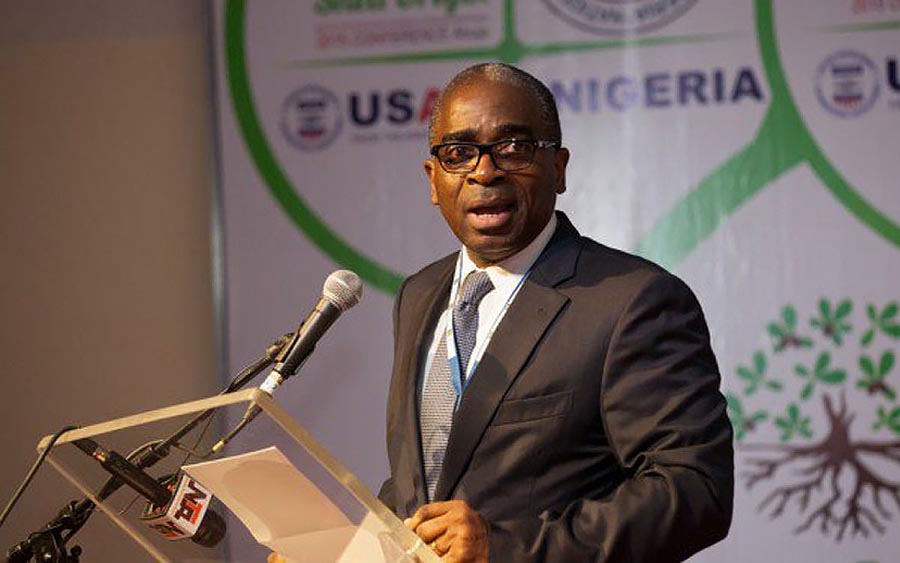Nigeria plans to increase its foreign reserve by $150 billion over the next 10 years. This was disclosed by the Executive Director/Chief Executive Officer of the Nigeria Export Promotion Council (NEPC), Mr Olusegun Awolowo.
The NEPC boss revealed that the zero oil plan could improve the nation’s foreign reserve by $150 billion over the next decade if successfully executed.
Awolowo made this statement yesterday at the Policy Development Facility Phase 11 (PDF 11), Non-Oil Export Conference and Awards, which was held in Lagos. He said that the zero oil initiative could create at least half a million additional jobs annually and remove no fewer than 20 million Nigerians from poverty, in line with the United Nations Sustainable Development Goals (SDGs).
According to his statement at the event, “Nigeria has run a mono-product economy for too long. We have been left vulnerable to oil price shocks, the latest of which we are seeing now with the outbreak of the Coronavirus.”
[READ MORE: Foreign reserves drop by $4.45 billion in 2019)
He said that NEPC developed the zero oil plan in response to the 2016 economic recession, which was as a result of a crash in oil prices. While offering more insight into the plan, he disclosed that it is a strategy aimed at boosting the country’s foreign exchange through the non-oil sector.
Awolowo explained that it is important for the government to roll out export policies for 22 major products that could generate about $30 billion annually in foreign exchange, all in a bid to prepare Nigeria for a world in which crude oil is less relevant.
He said, “The Zero Oil Plan will add an extra $150 billion minimum to Nigeria’s foreign reserves cumulatively from non-oil exports over the next 10 years.
“It will create at least 500,000 additional jobs annually, due to an increase in production and export activities, helping to contribute to SDG 8, which is, Decent Work and Economic Growth.
“Lastly, the zero oil plan will lift at least 20 million Nigerians out of poverty.”
He said that the Federal Ministry of Finance, Budget and National Planning had integrated the zero oil plan as a very important component of the Economic Recovery and Growth Plan (ERGP).
He also pointed out that NEPC had witnessed improvement in the non-oil export performance over the last few years just as data from the International Trade Centre in Geneva shows that non-oil export of products rose from $1.17 billion in 2016 to $3.16 billion in 2018.
